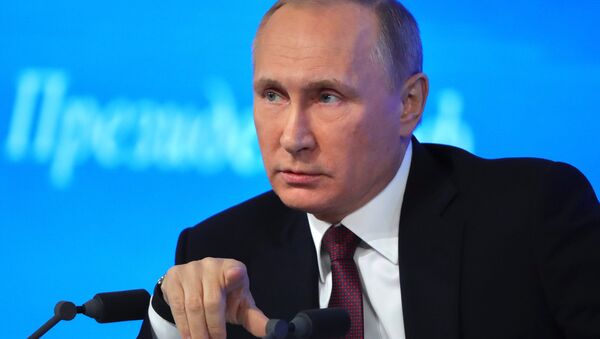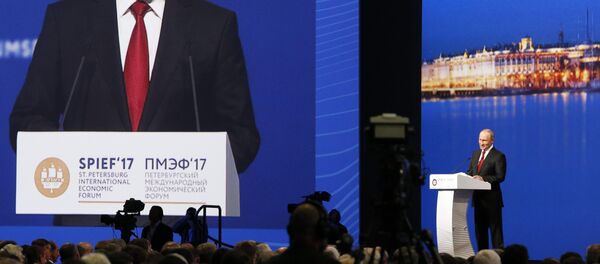In a series of interviews to renowned film director Oliver Stone, the Russian leader was asked a question if the United States would be dominant in a "hot war" with Russia.
"I think no one would survive [such a conflict]," Putin said.
The full four-part documentary by Stone, dubbed The Putin Interviews, will be broadcast by the Showtime television network on June 12-15. The documentary has been partially released to date.
According to the US media reports, as part of the preparations to the interview, Stone and Putin watched the film "Dr. Strangelove or: How I Learned to Stop Worrying and Love the Bomb" of 1964 by the US filmmaker Stanley Kubrick about a nuclear conflict between the United States and the Soviet Union. The Russian leader said in an interview as cited by The Daily Beast news outlet that Kubrick foresaw some contemporary issues from a technical point of view however the idea of a retaliatory weapon had become even more dangerous today with more sophisticated and complex weapons elaborated.
Political scientist and the deputy director of the Institute of Strategic Studies and Prognoses Nikita Danyuk told Radio Sputnik that Putin is right as the US and Russia are both nuclear powers, in case of any escalation, a global confict could emerge.
"We all clearly understand that the US and Russia are the two superpowers which have nuclear weapons: both strategic and tactical. And in case of any escalation of a conflict, not just a regional war, but a global conflict could surely emerge, which could end with the destruction of humankind. Thus, both states' policies should be responsible," the political scientist said.
He added that the US leadership should take into account Putin's words.
"As for a possible confrontation between the US and Russia, the history shows that crises have repeatedly happened, when we were on the brink "of a hot phase [of war], but we have always found solutions at the political and diplomatic level. I think the statement of the Russian leader given an impetus to the US counterparts that tensions should be avoided. In this case, it seems to me, such a signal would be understood rightly by our American partners and they would be more responsible in their foreign policy and wouldn't try to redraw the system of international relations," the expert concluded.


